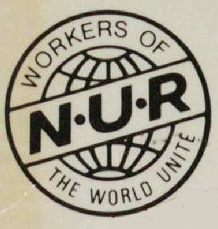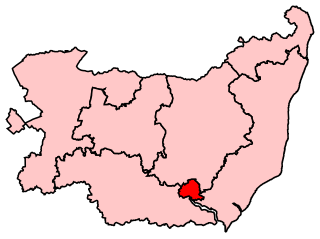This article relies largely or entirely on a single source .(April 2019) |
Walter Halls (16 June 1871 – 20 October 1953) was a British trade unionist and politician.

The British people, or the Britons, are the citizens of the United Kingdom of Great Britain and Northern Ireland, the British Overseas Territories, and the Crown dependencies. British nationality law governs modern British citizenship and nationality, which can be acquired, for instance, by descent from British nationals. When used in a historical context, "British" or "Britons" can refer to the Celtic Britons, the indigenous inhabitants of Great Britain and Brittany, whose surviving members are the modern Welsh people, Cornish people, and Bretons. It may also refer to citizens of the former British Empire.
A politician is a person active in party politics, or a person holding or seeking office in government. Politicians propose, support and create laws or policies that govern the land and, by extension, its people. Broadly speaking, a "politician" can be anyone who seeks to achieve political power in any bureaucratic institution.
Born in Gaulby in Leicestershire, Halls was educated locally before finding work on the railways. He became an active trade unionist, and was elected as an organiser of the National Union of Railwaymen in 1909. He was also active in the Labour Party, standing unsuccessfully for it in Northampton at the 1918 general election. He stood again in the Heywood and Radcliffe by-election, 1921, winning the seat, but lost it at the 1922 general election and again failed to win it in 1923. In 1931, he stood instead in Derby, but was once more unsuccessfully. [1]

Gaulby is a village in Leicestershire, England, 7 miles east of the city of Leicester. According to the 2001 census it had a population of 131,. including King's Norton and increasing to 241 at the 2011 census.

Leicestershire is a landlocked county in the English Midlands. The county borders Nottinghamshire to the north, Lincolnshire to the north-east, Rutland to the east, Northamptonshire to the south-east, Warwickshire to the south-west, Staffordshire to the west, and Derbyshire to the north-west. The border with most of Warwickshire is Watling Street.

The National Union of Railwaymen was a trade union of railway workers in the United Kingdom. The largest railway workers' union in the country, it was influential in the national trade union movement.
Halls also served on Nottingham City Council, and was Lord Mayor of Nottingham in 1940/41. [1]

Nottingham City Council is the non-metropolitan district council for the unitary authority of Nottingham in Nottinghamshire. It consists of 55 councillors, representing a total of 20 wards, elected every four years. It is led by Jon Collins, of the majority Labour Party. The deputy leader of the council is Cllr Graham Chapman. The last elections were held on Thursday 7 May 2015.





